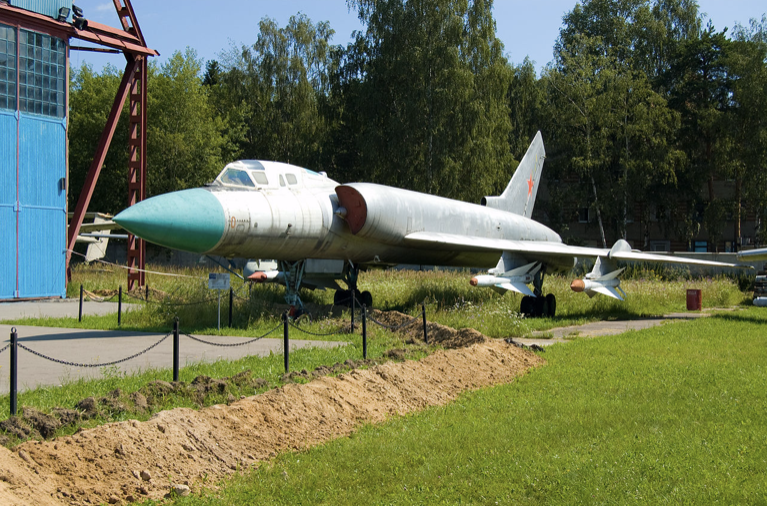
 |
| TU-128n- Copyright by Air Force Museum |
(Note: Some of you familiar with this incident and the "then-new" technology (maybe even fellow crew members from those flights) will recognize some slight factual inconsistencies. The minor linguistic deviations were intentionally made for reasons of security and the desire to still portray this interesting incident. Harry Swanson, 6985th 1973-1980)
It was the mid-1970s and I was about to fly my first solo mission as a newly qualified Burning Candy AMS with one of the finest aircrews in the world. I should have been ecstatic. Most newly minted "Admirals" are proud and eager to start out on their own, usually the culmination of many years of preparation and experience, but I was uncharacteristically apprehensive. Why?
I had over a decade of experience as an MA; I was qualified for, and had flown as, both a Cat III operator, ARC-106 operator and analyst, right-hand man to the AMS. I was already a certified and experienced Cobra Ball AMS. I was the 6985th NCOIC of Analysis and Reporting (DOA); had already made several Burning Candy AMS training flights aboard D Models 60-0362, 60-0356, and 60-0357 over our areas of responsibility, and I knew all of our areas AOBs by heart. Why, then, so nervous about my first solo AMS flight?
The answer is that some of the strengths I have just mentioned might also be characterized as weaknesses: 1.) My ego and I were "scared shitless" of letting down such a highly-qualified crew; 2.) we had begun referring to 356 as "Burning Baby," because of three consecutive "smoke and fumes" incidents while 5 hours away from home; and 3.) the area we were about to fly had been ignored for longer than an up-to-date AOB could tolerate. Some strengths can be weaknesses, but I was praying they wouldn't be.
Oh, yes: did I mention that we were flying a coordinated mission, precisely timed to explore an area equipped with the world's largest and longest-distance interceptor fighter? Did I tell you that unit's interceptor pilots were not afraid to fly over water (or ice), no matter how damned cold it was? Did I also tell you that those pilots were mostly veterans who had developed huge "attitudes" because of being stationed in the extremely remote Arctic where, too often, their ground crews had sabotaged those amazing TU-128 interceptor aircraft by drinking up the ethyl alcohol used for some hydraulic systems? So now, maybe, as you ride along with me, you can forgive my "newbie's" butterflies.
The first third of the mission, the effort to just "get there," was past. We were "on orbit," had all settled down to do our important "thing," and then the complacency was suddenly over. The Fiddlers were launched to intercept our uncharacteristic gaggle flying off their coast. The "pucker factor" began to rise, and our attention and abilities were quickly laser-focused on our safety. We all, especially those of us dedicated to ensuring the immediate safety of our aircraft and crew, continued doing the best we could to stay on top of our critical jobs. The rest tried to stay busy in this characteristically quiet area.
The Fiddlers were returning to base after giving us a frighteningly close inspection, and everything else was, as usual, fairly quiet. I suddenly sat straight up in my seat when I heard an unusual voice over the airways. Instantly, an operator reported, "AMS, I think that pilot has a woman with him!"
It couldn't be! Janes listed some Fiddlers were dual-seaters, but we had never heard of female intercept pilots. I know some of you are thinking that our career field's characteristic hearing deficits had struck us before our time, but it was true: there was a woman soporifically speaking to one of our intercept pilots.
There came the sultry, unhurried, soft voice of what had to be the most beautiful fox in the arctic: "Ivan, you are in danger of crashing."
"Ivan, you have excessive engine temperature."
"Ivan, your left engine has failed and you have insufficient altitude."
She droned, "Ivan, I urgently recommend you bail out."
A short time later, we departed orbit and headed home, uncertain of Ivan's fate. The international aviators'ethos of each of us hoped he made it OK. The adversarial nature of our geopolitics made us each hope he didn't.
As we roared our way home, nearly five long hours away, most crew members put their things away, shut their positions down, pulled blankets from their crew bags, and tried to get a few hours of Zs under their racks. It got comparatively quiet and cold as the ARC-106 operator and I tried to get some of our post-mission reports in draft order. Because of the interceptors' actions and my responses to them, I had not let my crew nor the front end down. Because I had orchestrated a successful and important mission, our adversary had unwittingly helped me to become the AMS I was destined to be, giving me the pride and confidence I knew was mine..
Droning our way onward, half asleep myself, I kept hearing that sexy, languid woman's voice: "Ivan, I urgently recommend you bail out."
God, I love this job!